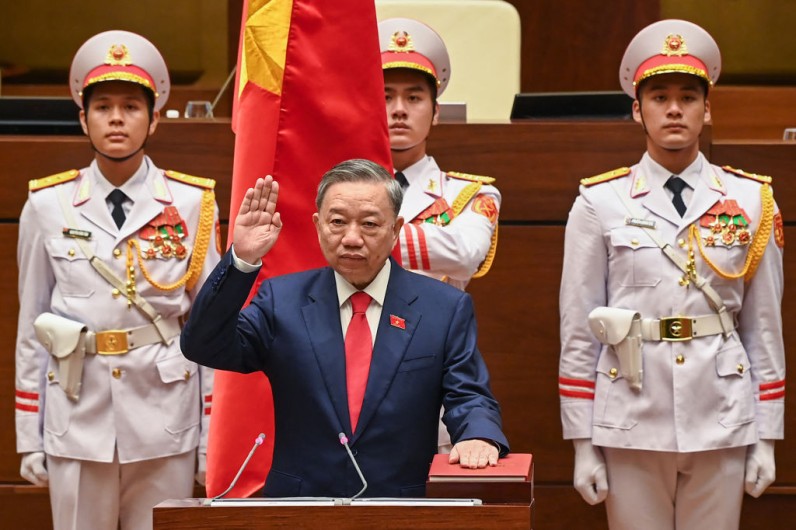
Vietnam's public security minister, To Lam, was confirmed as the country's new president on (May 22) after his predecessor, Vo Van Thuong, and National Assembly Speaker Vuong Dinh Hue resigned due to its current anti-corruption campaign, which resulted in drastic top-level changes in government.
Deputy speaker Tran Thanh Man replaced Hue in the parliamentary chair.
Vietnam's New President
The Associated Press reported that, prior to his appointment, Lam oversaw police and intelligence operations for over four decades, a period where human rights groups like Human Rights Watch and Amnesty International claimed basic liberties had been suppressed while its secret service was accused of violating international law.
VCPost reported in April about the conviction of property billionaire Truong My Lan, who was sentenced to death in the aftermath of the trial uncovering Vietnam's largest financial fraud case in its history.
In addition to Thuong and Hue, four more members of Vietnam's 18-member politburo were dismissed during Lam's rise to power.
Singapore-based ISEAS-Yusof Ishak Institute analyst Nguyen Khac Giang said that while the office of the Vietnamese president is largely ceremonial, Lam's new role puts him in a "very strong position" to become the next general secretary of the Communist Party of Vietnam, which outranks the presidency as the most political position in the country.
Giang added that Lam was behind many of the investigations into high-profile politicians.
READ NEXT : Truong My Lan's Death Sentence Could Negatively Affect Vietnam-Here's What Experts Explain
To Lam's Potential Road to General Secretary
The current general secretary, 80-year-old Nguyen Phu Trong, was elected for a third five-year term in 2021 and might not seek another one in 2026. He firmly believes that corruption is the party's greatest threat, and Lam is leading an anti-graft campaign in the party and wider Vietnamese society.
However, Lam is not the only person who could potentially succeed Trong; Giang speculated that Prime Minister Pham Minh Chinh was another potential candidate.
Economic Implications
The leadership shakeup in Vietnam spooked investors intending to put a stake in the country as an alternative to their supply chain reliance on China.
Vietnam's deep-seated animosity against its northern neighbor despite their communist ideology and the influx of foreign investment in industrialization could raise expectations for the country to join the "Asian Tigers" - a group of economic giants in the area currently composed of Hong Kong, Singapore, South Korea, and Taiwan.
However, Lam's questionable political and human rights record, combined with a political leadership that condones censorship and repression, might impact Vietnam's economic growth.






Join the Conversation